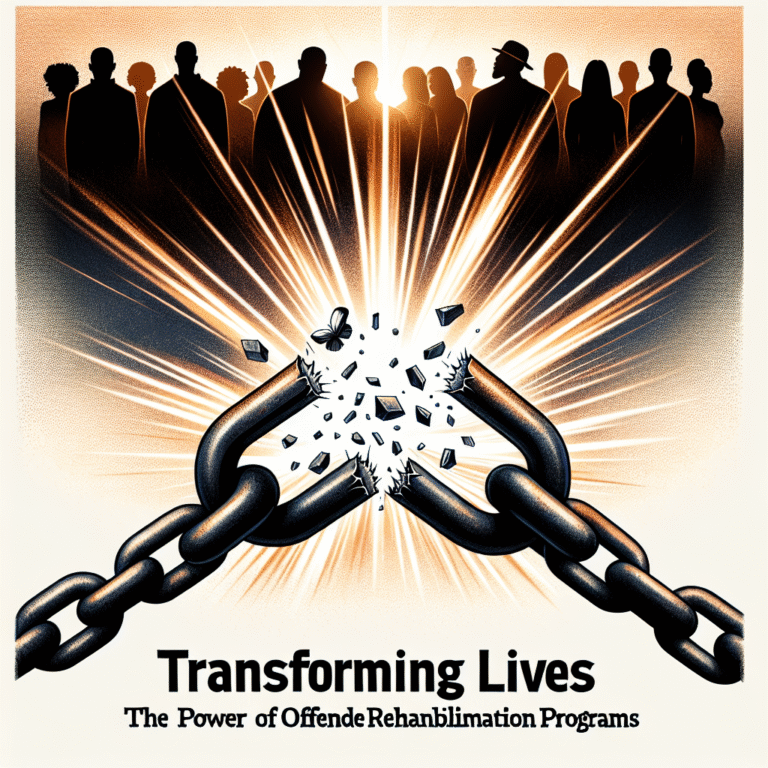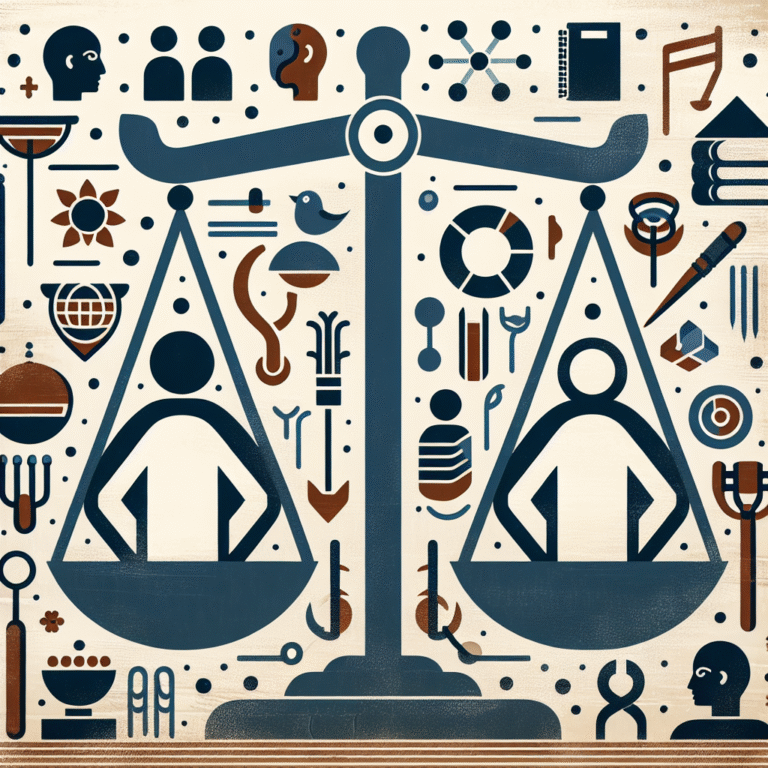
Introduction
In an era defined by advances in technology, shifting societal values, and ongoing debates about human rights, the topic of capital punishment remains both relevant and contentious. The practice of executing individuals for serious crimes evokes powerful emotions, ethical dilemmas, and multifaceted discussions surrounding justice, deterrence, and moral responsibility. This article, Weighing Justice: An In-Depth Evaluation of Capital Punishment in the 21st Century, seeks to explore the complexities and implications of this issue. By examining case studies, statistical data, and ethical considerations, we will navigate the intricate landscape of capital punishment as it stands today.
A Historical Overview of Capital Punishment
Ancient Roots
Capital punishment has a long history, dating back to ancient civilizations. In the Code of Hammurabi, for instance, certain crimes warranted the death penalty. Roman law also implemented severe penalties, including execution, for various offenses, underscoring a long-standing approach to justice that influences today’s legal systems.
Evolution Over Time
As societies evolved, perceptions of justice and human rights began to shift. The abolitionist movement emerged in the 18th century, fueled by Enlightenment thinkers advocating for more humane forms of punishment. Over time, many countries abolished the death penalty, while others maintained it, creating a patchwork of legal practices across the globe.
Current Landscape of Capital Punishment
Global Status
Today, the practice of capital punishment varies significantly across the globe. According to Amnesty International, as of 2021, at least 55 countries actively carry out executions, while over 120 have abolished the death penalty in law or practice. Countries like the United States, China, and Iran are notable for their high execution rates, raising questions about human rights and justice.
Table 1: Global Status of Capital Punishment (2021)
| Country | Status of Capital Punishment | Number of Executions (2021) |
|---|---|---|
| United States | Retained | 11 |
| China | Retained | Estimated 1,000+ |
| Iran | Retained | 246 |
| Canada | Abolished | 0 |
| Germany | Abolished | 0 |
Arguments For and Against Capital Punishment
The Proponents’ Perspective
Deterrence: Advocates argue that capital punishment serves as a deterrent to potential criminals. The fear of execution may discourage individuals from committing serious crimes.
Retributive Justice: Supporters believe that capital punishment is a necessary tool for achieving justice for victims and their families, asserting that certain crimes are so heinous that they warrant the death penalty.
- Closure for Victims’ Families: Some argue that executing a perpetrator can provide a semblance of closure for the families of victims, as it signifies societal condemnation of the crime.
The Opponents’ Perspective
Risk of Wrongful Executions: One of the most compelling arguments against capital punishment is the irreversible nature of executing an innocent person. Numerous cases have highlighted wrongful convictions, leading to calls for abolition.
Lack of Deterrent Effect: Critics contend that there is insufficient evidence to suggest capital punishment effectively deters crime. Many countries that have abolished the death penalty report similar or lower crime rates compared to those that maintain it.
- Moral and Ethical Considerations: Many opponents argue that taking a life is inherently unethical, advocating instead for rehabilitation over retribution. They question the moral authority of a state to decide matters of life and death.
Case Studies: Real-World Applications
Case Study 1: The Execution of Timothy McVeigh
Timothy McVeigh, responsible for the Oklahoma City bombing in 1995, was executed in 2001, becoming a high-profile example of capital punishment in the U.S. His case spurred widespread debate on national security and the effectiveness of the death penalty as a deterrent. Critically, it also challenged notions of justice based on swift retribution versus long-term societal healing.
Case Study 2: The Wrongful Conviction of Anthony Ray Hinton
Anthony Ray Hinton spent 30 years on death row for a crime he did not commit, highlighting the flaws and risks associated with capital punishment. He was exonerated in 2015 after the U.S. Supreme Court ruled that his defense attorney had provided ineffective representation. Hinton’s case exemplifies the potential for injustice within a system that sometimes prioritizes expediency over accuracy, sparking discussions on reforming the criminal justice system.
Table 2: Profiles of High-profile Capital Punishment Cases
| Name | Crime | Year Executed/Exonerated | Key Issues Highlighted |
|---|---|---|---|
| Timothy McVeigh | Oklahoma City bombing | 2001 | National security, retribution |
| Anthony Ray Hinton | Wrongful conviction | Exonerated in 2015 | Risk of wrongful execution, legal reform |
Impact of Technology on Capital Punishment
Advances in Forensic Science
The advent of DNA evidence has led to the exoneration of numerous individuals wrongfully convicted, changing the dynamics of capital punishment discussions. Forensic advancements have enabled a more accurate assessment of guilt, heightening the demand for re-evaluation of past convictions to prevent wrongful executions.
Transparency and Public Engagement
Technology has also increased transparency, allowing for greater public engagement in discussions surrounding capital punishment. Social media platforms have become integral in mobilizing campaigns for abolition or reform, fostering conversations that challenge the status quo and bringing attention to injustices.
Striving for Alternatives: A Path Forward
Abolition Movements
In recent decades, numerous organizations have emerged to advocate for the abolition of capital punishment worldwide. Groups like Amnesty International and the Innocence Project play crucial roles in raising awareness about the moral, legal, and social implications of the death penalty.
Life Sentences Without Parole
One proposed alternative is the implementation of life sentences without parole. Proponents argue that this approach can serve the interests of justice by ensuring public safety without resorting to execution, effectively addressing moral concerns associated with taking a life.
Conclusion
In summary, the topic of capital punishment demands careful consideration as we navigate the complexities of justice, morality, and human rights in the 21st century. Weighing Justice: An In-Depth Evaluation of Capital Punishment in the 21st Century reveals a landscape marked by growing skepticism about its effectiveness, monumental legal failures, and profound ethical questions.
As societies continue to evolve, it is crucial to engage in substantive dialogues and advocate for reforms that prioritize human dignity, fairness, and restorative justice. The journey towards justice in our time requires not only reflection but also action. Whether you find yourself in favor of abolition or support for the death penalty, understanding the nuances of this debate empowers us as informed citizens and advocates for a just world.
FAQs
1. What is capital punishment?
Capital punishment, also known as the death penalty, refers to the state-sanctioned execution of an individual as a punishment for a crime, typically reserved for the most serious offenses, like murder.
2. Is there evidence to support the claim that capital punishment deters crime?
Evidence is contentious. Some studies suggest a deterrent effect, while others find no significant correlation between capital punishment and lower crime rates. The debate remains unresolved, with many advocating for a comprehensive analysis.
3. What are the most common methods of execution?
Methods of execution vary by jurisdiction. Common methods include lethal injection, electrocution, gas chamber, hanging, and firing squad. Lethal injection is the most widely used method in the United States.
4. How do wrongful convictions impact the discourse on capital punishment?
Wrongful convictions serve as a critical argument against capital punishment, illustrating the risk of irreversible errors in the justice system and highlighting the need for reforms to prevent such occurrences.
5. Are there alternatives to capital punishment?
Yes, alternatives include life sentences without parole and restorative justice approaches. These alternatives aim to balance public safety with ethical considerations, allowing for accountability without taking a life.
This article has provided a comprehensive exploration of capital punishment in the 21st century, answering the call for clarity and understanding. As we move forward, it is imperative that the dialogue continues, embracing change that reflects our evolving values and commitment to justice.

















